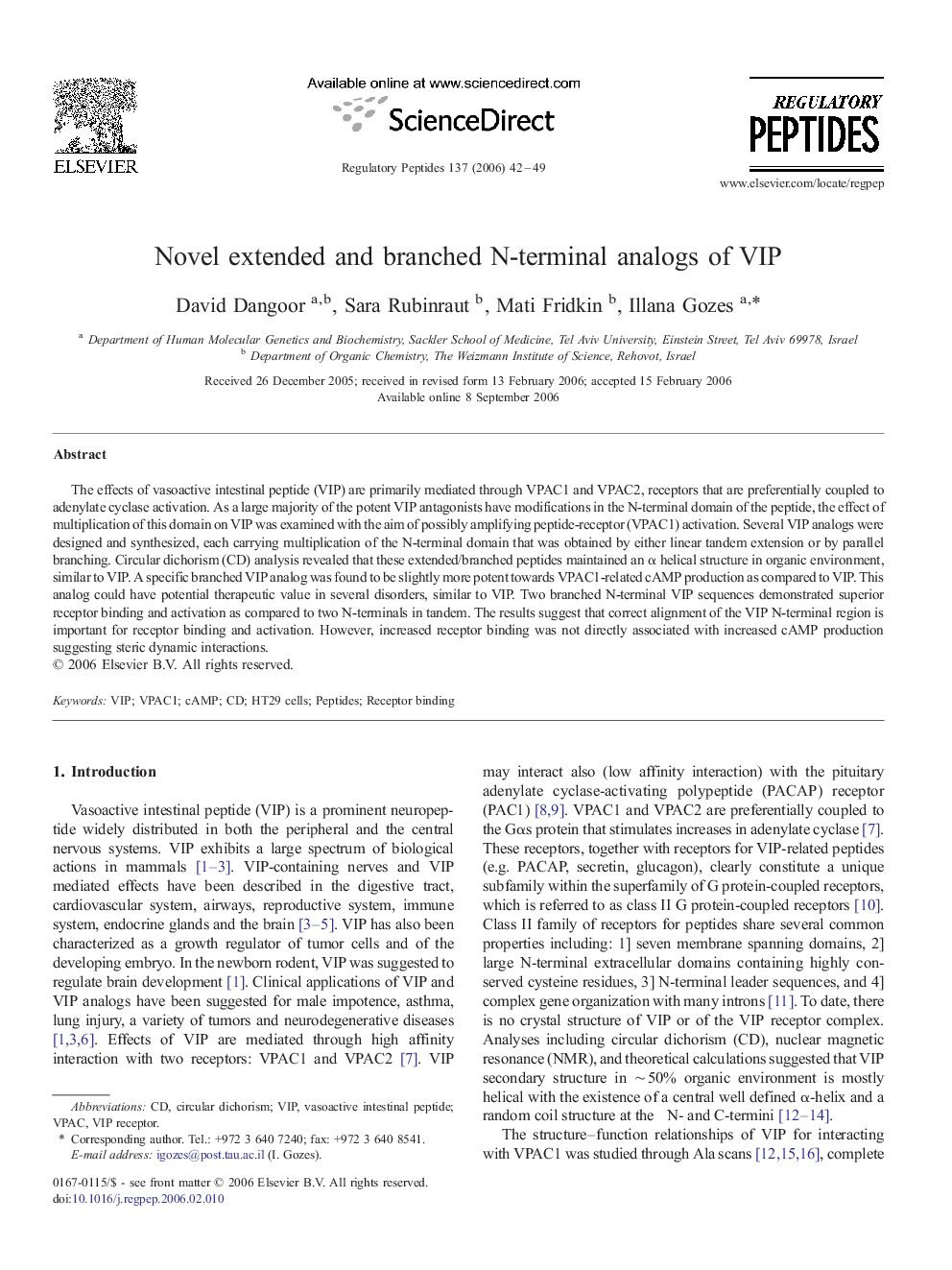| Article ID | Journal | Published Year | Pages | File Type |
|---|---|---|---|---|
| 2023551 | Regulatory Peptides | 2006 | 8 Pages |
The effects of vasoactive intestinal peptide (VIP) are primarily mediated through VPAC1 and VPAC2, receptors that are preferentially coupled to adenylate cyclase activation. As a large majority of the potent VIP antagonists have modifications in the N-terminal domain of the peptide, the effect of multiplication of this domain on VIP was examined with the aim of possibly amplifying peptide-receptor (VPAC1) activation. Several VIP analogs were designed and synthesized, each carrying multiplication of the N-terminal domain that was obtained by either linear tandem extension or by parallel branching. Circular dichorism (CD) analysis revealed that these extended/branched peptides maintained an α helical structure in organic environment, similar to VIP. A specific branched VIP analog was found to be slightly more potent towards VPAC1-related cAMP production as compared to VIP. This analog could have potential therapeutic value in several disorders, similar to VIP. Two branched N-terminal VIP sequences demonstrated superior receptor binding and activation as compared to two N-terminals in tandem. The results suggest that correct alignment of the VIP N-terminal region is important for receptor binding and activation. However, increased receptor binding was not directly associated with increased cAMP production suggesting steric dynamic interactions.
